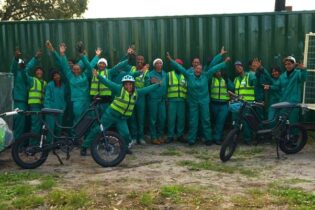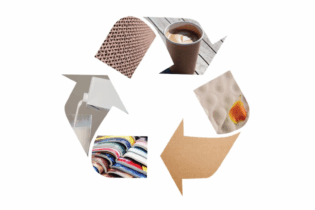No matter what our creed, April entails public holidays, time away, entertaining and often feasting. With this traditional break soon to be upon us, the Institute of Waste Management of Southern Africa (IWMSA) urges all South Africans to reduce excessive food consumption, compost organic waste wherever possible, and be especially conscious of purchasing over-packaged products.
The holiday period is habitually a time of largesse for many South Africans and we are attracted to brightly packaged products, which often contain disappointingly small consumables inside their cheerful and wasteful casings. Along with the packaging, we tend to overstock on groceries ,which may end up not being used and ultimately discarded, adding to the ever growing piles of organic waste we send to landfill every year. Vice-President of the IWMSA, Dr Susan Oelofse says, “Not only is it an unnecessary expense to buy too many food items that we do not need and cannot possibly consume, it is simply unconscionable in today’s difficult economic times. In terms of refuse, food, or organic waste is a huge landfill challenge since it represents the major contributing factor to the production of harmful methane gases. Altogether, a staggering 40% of the waste that ends up in our landfills annually is organic; a clue which tells us that as consumers, we are wasteful creatures indeed. We can minimise this type of waste by planning before we shop, careful storage so that leftover food does not become tainted and inedible, and of course, composting wherever possible.” However, food waste is not the preserve only of the end consumer, Oelofse contunes; there is also the issue of organic waste being produced during the agricultural process, as well as in harvesting, handling, storage, processing and distribution. These factors are critical and very good reasons for us to support our local food producers. There is substantially less overall wastage if the point at which the food originates, to the point of its final distribution is reduced.‘One must also bear in mind that the production of food requires the use of all sorts of the earth’s resources. A horrifying statistic is that yearly, we waste around at least one third of our total global food production. Had that wasted food not been produced in the first place, perhaps more trees could be grown, which would in turn go a long way to offsetting harmful greenhouse gas emissions,” she explains. “Mismanagement of our planet, it seems, is what we do best and yet if we all try to make even a minuscule difference, the cumulative effects could make a tremendous and positive difference.”
For more information, visit: www.iwmsa.co.za





